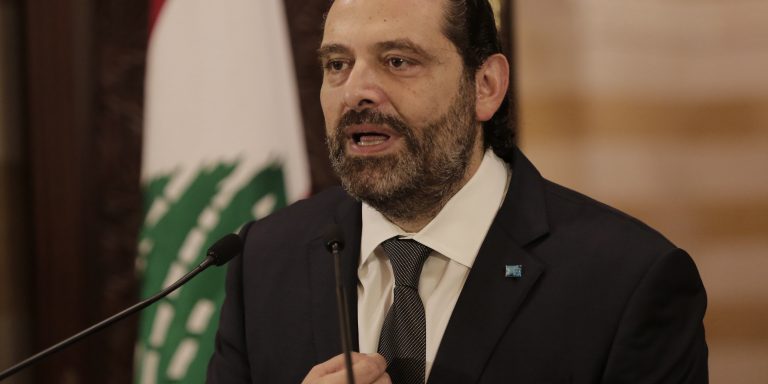INTELBRIEF
October 30, 2019
IntelBrief: ‘All of Them’ Starts with Hariri: The Lebanese Protests Continue

- On October 29, Lebanese Prime Minister Saad Hariri announced he and his government would resign, amid massive protests.
- Although the protests initially cut across sectarian divides, more recently, there have been hints of disunity within the country-wide protest movement.
- Government officials from both France and Germany urged the Lebanese government to pursue stability while warning against a political vacuum.
- Corruption has been so ubiquitous in Lebanon that few politicians can credibly claim to be unscathed.
.
The protests that began two weeks ago in Lebanon over a proposed tax on messaging apps such as WhatsApp have now toppled the government. On October 29, Prime Minister Saad Hariri announced he and his government would resign after failing to stem the tide of growing popular unrest taking place in the streets across the country. After Hariri’s announcement, throngs of protesters erupted in cheers and unbridled celebrations of joy. Unlike other demonstrations in recent memory, these protests have largely been grassroots and leaderless, with anger directed at the systemic corruption and incompetence of Lebanon’s political leadership and longstanding government elites. The groundswell of anger at the proposed $6 monthly tax on Whatsapp, a proposal that the government has since abandoned in response to the protests, soon focused on the inequity of an exclusionary political system based of patronage that remains out of reach from most ordinary citizens.
Although the protests initially cut across sectarian divides, more recently there have been hints of disunity within the country-wide protest movement. Hezbollah, which is a hybrid political-military force within Lebanon that enjoys massive popular support among Lebanese Shi’a, had assumed a ‘wait and see’ posture in the early days of the protests. Hassan Nasrallah gave a speech in which he said all Lebanese power brokers and factions were to blame, including Hezbollah, and needed to address the real concerns of the people. This stance then gave way, somewhat predictably, to finger pointing at outside intervention and the alleged role played by external powers responsible for Lebanon’s ongoing woes. There were reports that vigilantes and roving mobs loyal to Hezbollah and the Amal party were attacking demonstrators in central Beirut. The Lebanese army has at times kept the protesters and ‘counter-protesters’ apart, but there have been clashes. Supporters of President Michel Aoun have also clashed with protesters.
Hariri’s resignation, coming on the heels of several previous corruption scandals, likely will not be enough to satisfy the protesters’ demands for change. France’s Foreign Minister Jean-Yves Le Drian made a plea for the leadership of Lebanon to focus, above all else, on working to ‘guarantee the stability of institutions and the unity of Lebanon.’ Germany’s foreign minister Heiko Maas echoed similar sentiments, warning against a power vacuum in the country and urging for the protests to remain peaceful. Lebanon’s economy remains on the verge of collapse; banks and schools have been closed during the protests and the meager basic services that were provided before the protests have ceased altogether. Checkpoints have popped up around the city and traffic has come to a standstill as main thoroughfares are blocked off. The government is still unable or unwilling to manage basic municipal services like trash collection and electricity and water provision.
It is unlikely that sectarian and political leaders will voluntarily forfeit the power they have amassed over the years. To date, protesters have rejected all half-measures as inadequate while also voicing displeasure that the Lebanese government is beholden to regional powers like Iran and Saudi Arabia. Hariri, who attempted to resign once before in 2017 under pressure from Riyadh, will have to be replaced, although there is no obvious suitable candidate to fill his role. Corruption has been so ubiquitous in Lebanon that few politicians can credibly claim to be unscathed. The protesters’ chant of ‘all of them means all of them’ amounts to more than a mere slogan—it is an accurate assessment that few within the current political leadership have the faith and backing of the Lebanese population, particularly given how endemic corruption in the country has been over the years.
.
For tailored research and analysis, please contact: info@thesoufancenter.org